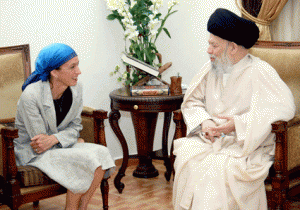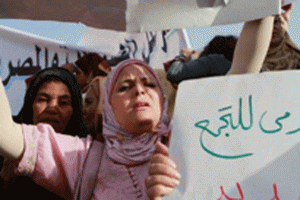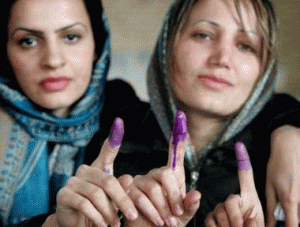Internet revolution in crisis
WCIT 12: Milton Mueller asks if governments are turning their backs on the global internet? A push to change the business model that delivers online content could stifle innovation and make the net an instrument of sovereignty, stuck behind national walled gardens
At the end of the 20th century, an incredible revolution took place. Barriers to the free flow of information were knocked down and a powerful cycle of technological innovation was set in motion, transforming the economy, first in the United States and then around the world.
No, I am not talking about the internet.
I am referring to the liberalisation of the telecommunications industry, which led to a huge economic revolution in the 1980s and 1990s. It started with a big bang: the breakup of the AT&T monopoly. As early as the mid- 1960s, policy-makers knew they didn’t want the emerging information services industry to be dominated and stifled by an enormous monopoly. The US Federal Communications Commission created a regulatory distinction between ‘basic’ and ‘enhanced’ services, ‘enhanced’ being defined as any transmission that included ‘information processing’. Information services would be unregulated and the market left wide open. This process began in the US and was followed by the largest economies in Europe and Asia. Technical standards escaped from the control of national governments and a huge number of new competitors entered the market. With global free trade agreements in place for IT equipment and telecommunication services, in 1995 and 1997 respectively, economic liberalisation of the industry was complete.
Deregulation had profound consequences. The same infrastructure was used for both the transmission of information services (such as early emails, and data-sharing) and telephone calls, but businesses delivering information services were exempt from the entry restrictions and gatekeeping regulations levied on telephone companies. In the late 1980s, the US pried open space for what was then a largely experimental market, pushing for trade rules to internationalise these reforms. In that pre-internet period, countries such as Japan, the UK and Hong Kong saw no harm in opening up what was a tiny market. Little did those early negotiators know that they were clearing a path for the spread of the internet. Considered an ‘information service’ because it was essentially software run by computers, the internet spread over global telecommunications networks like wildfire. After 20 years, it would swallow up the massive telephone market and transform newspapers, television, radio, publishing and practically every other mode of communication.
The economic roots of internet freedom
Much of the freedom and openness we associate with the internet is not a product of its technology. Many respected scholars have promoted the notion that there is something about the internet’s ‘architecture’ or ‘design’ that magically makes information free. True, the internet’s design made it cheaper and easier to interconnect thousands of different networks and devices. But its technical potential could never have been realised without an open, liberal industry. Without the deregulation of information services, without the market economy in telecommunications, without diversity and competition among providers and free trade agreements that enable content and investment from anywhere in the world, there would be no internet freedom. Internet technology – TCP/IP protocols – can be installed in computers in North Korea, but it won’t make communications in that country free. If a repressive government owns and operates the telecommunications infrastructure, blocks trade in computer and telecom equipment, does not allow a free market for access, devices or services to develop, censors or jails dissident publishers and forces new online businesses to obtain permission to trade online, it’s easy to contain and control the internet.
A counter-revolution in the making?
The internet now dominates our communications environment. But older communication laws, regulations and policies have begun to haunt it. There is a tendency to try to make the internet like the old media, so that governments and interest groups can recreate the kinds of controls they once had. In particular, there are widespread attempts to reassert nation-state authority. In December 2012, the World Conference on International Telecommunications (WCIT) will take place in Dubai. The UN meeting will revise the International Telecommunication Union’s International Telecommunication Regulations (ITRs), a binding treaty intended to ‘facilitat[e] global interconnection and interoperability of telecommunications facilities’. The ITRs were established in 1988 – years before the internet had become a mainstream medium and just as telecommunications liberalisation was in full swing.
The world has changed dramatically in the 25 years since the current ITRs were drafted. Since 1988, the internet’s technical standards community has used open working groups to develop or revise hundreds of new standards and make them available online for free. The ITU’s telecommunication standards development activities, in contrast, have shrunk and its revenue model, based on high membership fees granting exclusive access to official standards documents, has become unpopular. New private sector institutions, such as the Internet Corporation for Assigned Names and Numbers (ICANN) and regional internet registries, allow open public participation and set policy for infrastructure. In the ITU, in contrast, decisions are based on a one-country, one-vote calculus and ordinary internet users, digital rights advocates and civil society are not well represented. The
Dubai conference represents a crossroads for the future of telecommunications: the ITU must update its treaty to take account of the internet or risk slipping into historical irrelevance. It’s as if the internet is now being visited by the ghosts of telecommunications past.
Some alarmists have claimed that proposed revisions to the treaty threaten internet freedom, presenting it as a ‘takeover’ plot by authoritarian governments in the ITU, a premeditated attempt to subjugate the internet to states once and for all. Although these fears have gained an enormous amount of publicity, they are largely unfounded. Aside from polarising the dialogue, they tend to divert attention from the real issues.
The ITU is in no position to assert control over the internet’s domain name or addressing systems or its open standard-setting processes. The ITRs cannot really impose global content regulation. The ITU has no enforcement or policing capabilities; it relies entirely on member states to apply and enforce its rules. No democratic governments will agree to impose Chinese-style censorship on their local internet users simply because of an ITU regulation or guideline. Besides, as the case of China makes clear, national governments already have the authority to censor and regulate internet users if they want to.
The potential dangers emerging from WCIT negotiations are more subtle. Decisions taken during the conference could undermine the economic liberalism of the communications sector. One of the most progressive and important parts of the 1988 regulations was Article 9, a short annex entitled ‘Special Arrangements’. It allowed companies to privately negotiate how ‘special telecommunication networks, systems, and services’ operate. Most agreements concerning internet connections are made possible under this provision. Revised regulations could pull web interconnections into a more burdensome regulatory regime. Some governments and telecom companies (many of which are still monopolies and/or state-owned) want to turn national telecom operators into gatekeepers of internet services, applications and content, which could lead to fragmentation of the internet. Some telephone companies are trying to apply old charging models to internet traffic, as if requesting a web page or video was like making an international telephone call. This could make the internet more expensive for users or stifle business models based on different charging models. It could open the door to charging schemes designed to subsidise national operators at the expense of service providers that rely on the telecommunications infrastructure but do not own it, such as YouTube or Skype.
A more progressive approach would emphasise the gains of liberalisation. Countries should be encouraged to permit multiple, competing service providers and allow them to freely negotiate traffic exchange and content distribution deals. New regulations should affirm the basic principles underlying the World Trade Organisation’s free trade agreements and eliminate all forms of protectionism and national filtering of legitimate information services.
Cyberspace and national security
The Dubai conference will also consider proposals to include cybersecurity in the ITRs. Of course, security problems online are real and do need to be addressed. But it’s questionable whether effective solutions can be included in the new regulations and whether the ITU is the best authority to come up with them.
At best, proposals to address security concerns are unfocused and a bit naïve. Member states are asked to ‘stop spam’, ‘protect data and network integrity’, ‘ensure internet security and stability’ or ‘supervise enterprises operating in their territory’. These proposals reveal the basic disconnect between the security problems of the internet and the ITRs. Cybercrime, spam, and cybersecurity issues involve not just network operations and standards but a complex interaction of hardware standards, software engineering, content and human behaviour. Cybersecurity also relates, of course, to the military, so problems relating to it go far beyond the ITU’s remit and capabilities. Attempts to regulate cybersecurity would vastly expand the scope of the ITU and erase the boundary between information services and telecommunications – with very little likelihood of being effective.
At worst, proposals to deal with cybersecurity reveal nostalgia for the nationally-controlled telecommunications of the pre-internet era. Some proposals would try to prevent international communications that ‘interfere in [states’] internal affairs’ or that undermine ‘sovereignty, national security or territorial integrity’. These proposals have little support, and even if passed could not really shield states from ‘subversive content’ as long as the current liberal information services regime holds in most of the world. But underlying these proposals is an apparent belief that the borderless information flow of the internet is inconsistent with traditional approaches to national sovereignty and security. Even in the US, where the WCIT delegation defends the internet model, the increasingly popular notions of ‘critical infrastructure protection’ and the pursuit of superior cyber warfare capabilities threaten to militarise the internet and push communications back into national walled gardens.
The internet flourished precisely because it was allowed to develop outside a state-dominated political environment where information and communications were seen as instruments of sovereignty, surveillance and power. The new communications and information sector was an instrument of global commerce, free trade, innovation and open culture. Internet freedom advocates must understand and support the economic institutions that made the internet revolution possible. The most important negotiations at WCIT will not be about censoring content or taking over domain registration. They will be about whether the telecommunications revolution will be allowed to continue, or whether it will be pushed in the opposite direction.
©Milton Mueller
Milton Mueller is professor at Syracuse University School of Information Studies and the author of Networks and States: The Global Politics of Internet Governance (MIT Press) revolution in crisis
What can you do?
Index and many other civil society organisations that fight for free speech and internet freedom oppose moves to give the ITU authority over the internet. Join more than 33,000 other citizens from 166 nations and sign here to ask your nation’s leaders to protect global internet freedom
If you are an academic or work for a civil society organisation — join us by signing on here and send the letter to government officials who are participating in the ITU process




